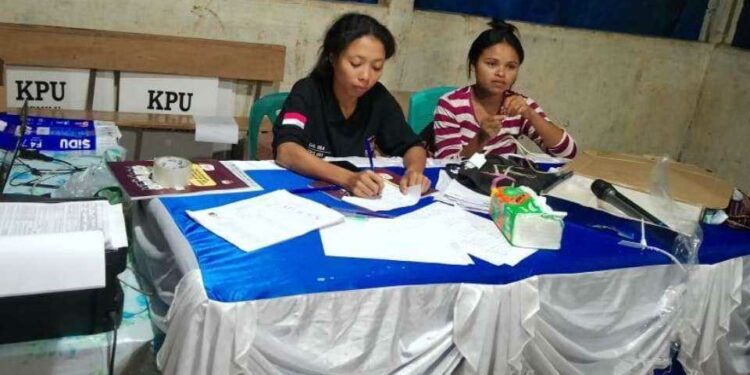Nearly 94 officials died of fatigue and thousands fell ill during the world’s biggest single-day polls in Indonesia, sparking calls for changes to norms to ease the burden on people on election duty.
“For us in the government, especially at the health ministry… one life lost is one too many,” Health Minister Budi Sadikin said, adding the government was looking into the issue.
Eight days after polls ended in the third largest democracy and fourth most populous nation in the world, 94 election officers, who mainly carried out vote recapitulation in the archipelago with three time zones, reportedly died and 4,567 persons needed medical treatment, the health ministry said on Feb. 21.

This time Indonesians went to polling stations to choose a new president and vice president, a parliament, and lawmakers among 20,000 administrative posts on local bodies. More than 10,000 candidates from 18 parties vied for seats in the 580-member national parliament alone.
Each voter had to cast five ballots to mark their choices. The polls were clubbed together to save money in a nation with over 279 million people and more than 200 million voters.
Sadikin said that the ministry had conducted health screening for election officials, where as many as 400 out of 6.8 million officers were found to be at high risk due to hypertension and heart disease.
Since the screening was carried out after their selection, their participation in the poll process could not be canceled, the minister told a press conference in the capital Jakarta on Feb. 20.
Poll norms in the country require vote recapitulation to be completed within 12 hours following elections and may be extended for another 12 hours if required.
Apart from manual calculations, officers have to upload data into an online application.
During the 2019 polls, 500 election officials died. The strict norms have drawn criticism from officers.
El Anshari, an election officer in Koja Doi Village in Sikka Regency, East Nusa Tenggara province, told UCA News that he and colleagues were able to take only a five-minute break to meet the target.
“We ended up sleeping on chairs at the polling station,” he said.
Anshari said he finished the job and became free only on Feb. 16.
Punensiana Nganal, another official in Manggarai Regency, said she and her team worked from Feb. 13 to Feb. 16.
There should be “additional officers in the next elections,” Nganal demanded.
In Manggarai Regency, a poll officer, Edit Lustriana Lenem, reportedly fainted and was rushed to a hospital in the early hours of Feb.15 due to exhaustion, and the vote counting was halted.
Antonius Bendot, head of the politics division of a Catholic Youth organization, said poll duty has become a burden for officers.
Though there is a health check-up, the “implementation is not strict,” Bendot observed.
It is better not to combine elections, he suggested.
We are trying to save money, but “the system costs lives,” he told UCA News.
Chairman of the General Election Commission (KPU) Hasyim Asy’ari has promised compensation for victims and their families.
Credit: Source link




